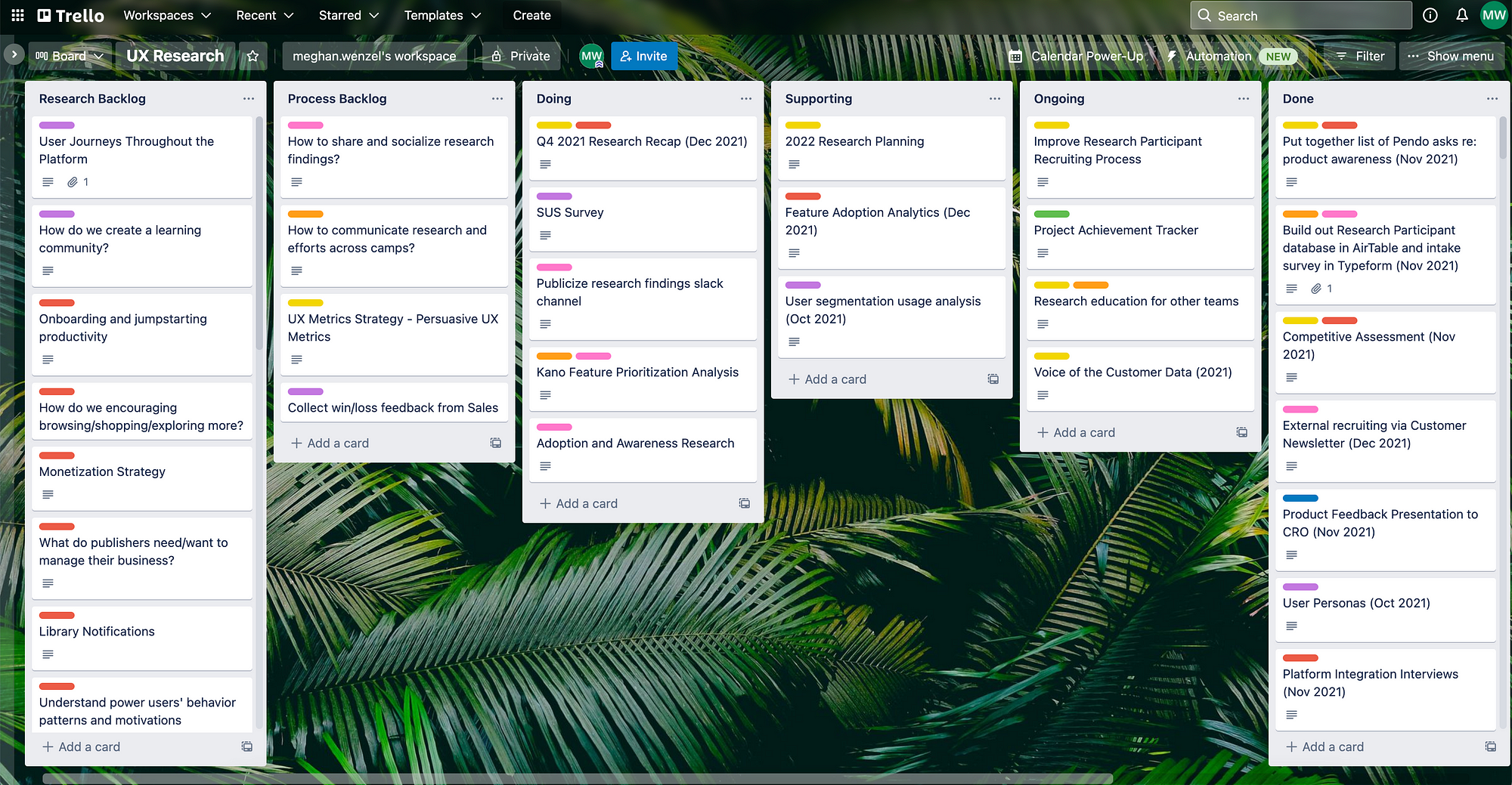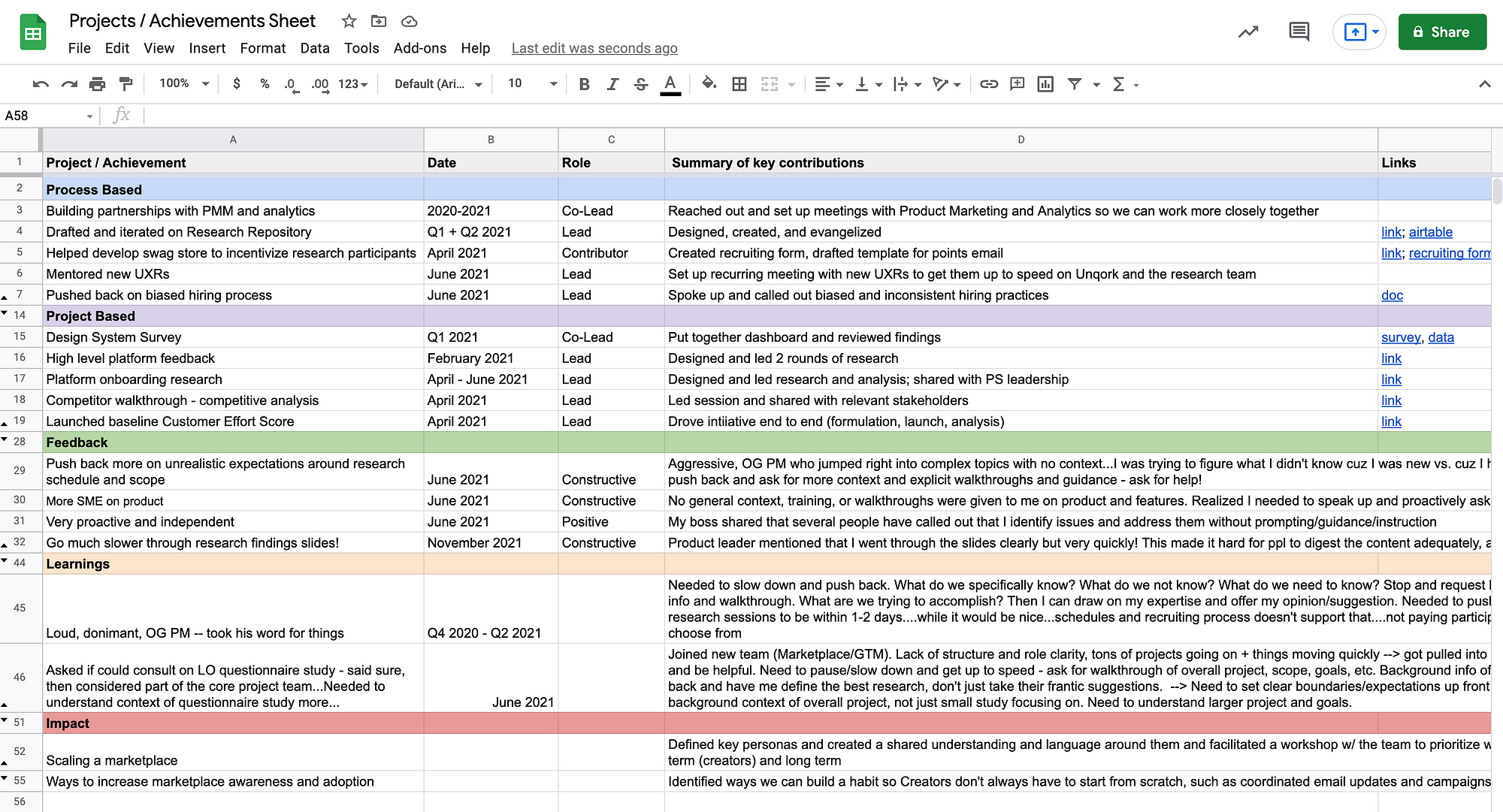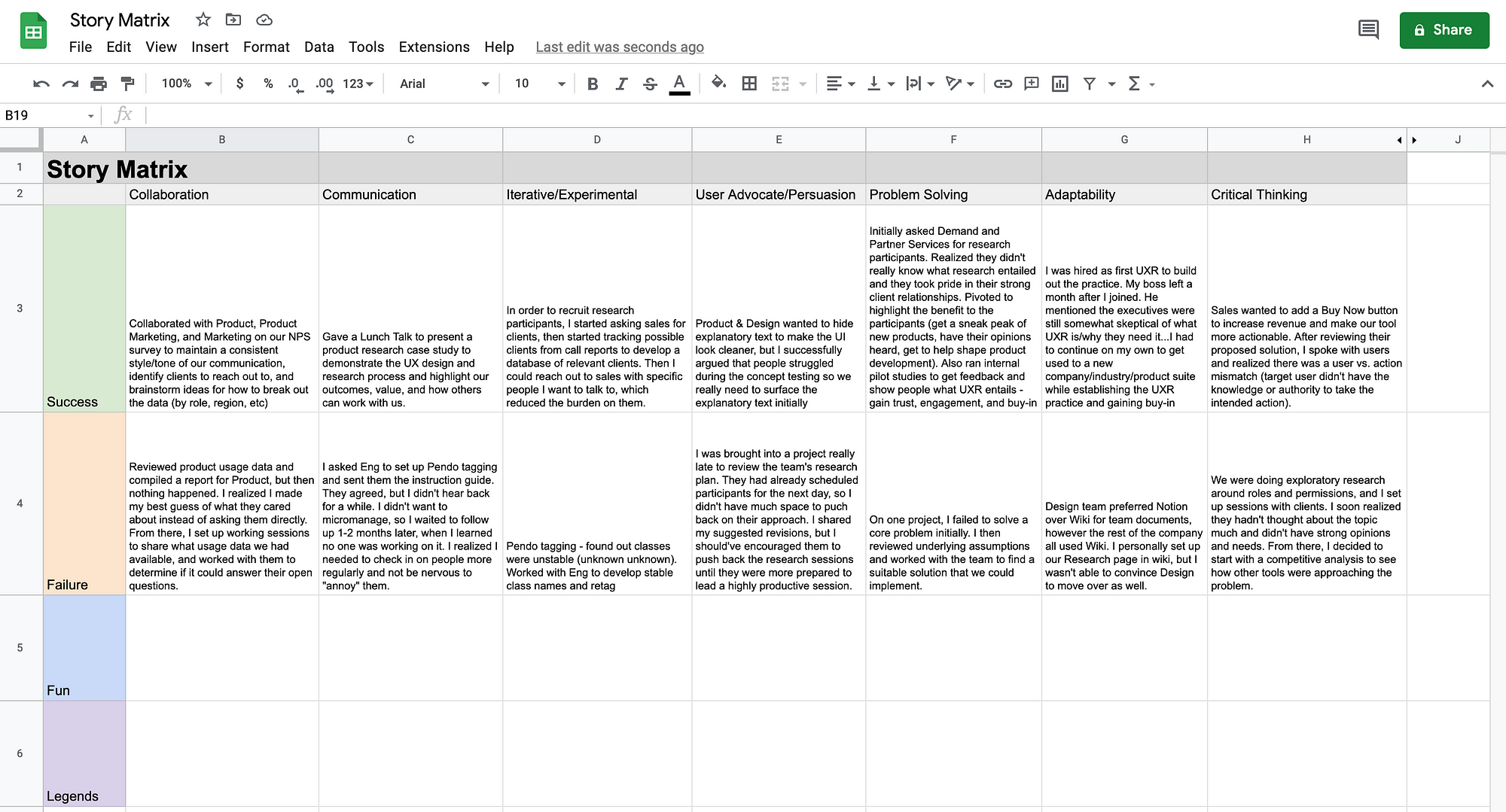

Do you deserve a raise, promotion, or a new job?
source link: https://uxdesign.cc/do-you-deserve-a-raise-promotion-or-a-new-job-322f6daca228
Go to the source link to view the article. You can view the picture content, updated content and better typesetting reading experience. If the link is broken, please click the button below to view the snapshot at that time.
Do you deserve a raise, promotion, or a new job?
Three tools to help you effectively advocate for yourself and your work

Whether you’re angling for a raise, a promotion, or an entirely new job, it’s important to advocate for yourself and be able to talk to the impact of your work. In order to build a compelling and detailed narrative, it’s crucial to record, reflect, and advocate for your efforts. Help your manager help you by doing the heavy lifting in putting together a persuasive and concrete narrative demonstrating the impact of your contributions.
Record your work and contributions
The first step in crafting a compelling narrative is collecting relevant data points. Many companies only do annual reviews, and it can be challenging to remember everything you’ve accomplished in the past year.
Personally, I use a Trello board to organize and track my work. I have:
- A Backlog section to record ideas for upcoming projects and process improvements;
- An In Progress section to record things I’m currently doing, supporting, and maintaining ongoing;
- And a Done section where I keep track of everything I’ve completed.

The Done section is great for reviews and interview prep, as you can quickly see all of the things you’ve accomplished. Adding dates to in progress and completed cards can help you track progress over time.
As you sit down to write your self reflection, prepare for a review with your manager, or rehearse for a job interview, you can scroll through your Done column to jog your memory and select key outcomes that you’re proud to highlight and share.
Reflect on your accomplishments, impact, feedback, and learnings
In addition to tracking my work in Trello, I keep an Achievement Tracker where I record big wins, projects, and accomplishments I’m particularly proud of. This is another tool to track accomplishments and reflect on the impact you’ve had.
I started tracking process and project-based accomplishments, but over time I started adding in peer feedback I received as well as overall learnings and outcomes. Taking time to periodically reflect on projects, experiences, and interactions can help you crystallize your thoughts and learnings. It also can be helpful to reflect on the longer term impact you’ve had. While the Trello board focuses on day-to-day work, this sheet can record higher-level or longer-term outcomes.

This sheet can serve as a personal development tool. By measuring longer-term accomplishments and impact, reflecting on peer feedback, and synthesizing learnings, you can chart your growth and identify key strengths and areas of opportunity.
Advocate for yourself
After tracking your work and reflecting on your accomplishments and impact, you can begin crafting a compelling narrative around them. In What’s Your Story? Using Stories to Ignite Performance and be More Successful, Craig Wortmann explains how stories are powerful and persuasive tools. Stories build relationships, illustrate success and failure, allow for reflection, and tap into our emotions.
Wortmann shares the concept of a story matrix, where you record powerful stories that illustrate key concepts. He notes that while stories are influential, it can be difficult to remember the perfect one at the drop of a hat. To address this, he suggests defining core characteristics or traits you want to convey and recording relevant stories for each.

Recording these stories will help you reflect on your experiences and remember relevant situations and interactions. This way, during a performance review or interview, you can share powerful, poignant, and illustrative stories to make your point. This process can also help you learn more about yourself, seeing which traits come easiest to you and where you might want to focus more of your efforts.
After working hard all year, you want to do yourself and your work justice. Don’t let a lack of preparation or advocacy overshadow your hard-fought wins. By developing a habit of recording, reflecting, and advocating for your work, you can become more data-driven, persuasive, and prepared. Try out your own work tracker, achievements and learning tracker, and story matrix, adapting them however you see fit to meet your unique circumstances and needs.
Like this article? Join my email list.
Recommend
About Joyk
Aggregate valuable and interesting links.
Joyk means Joy of geeK